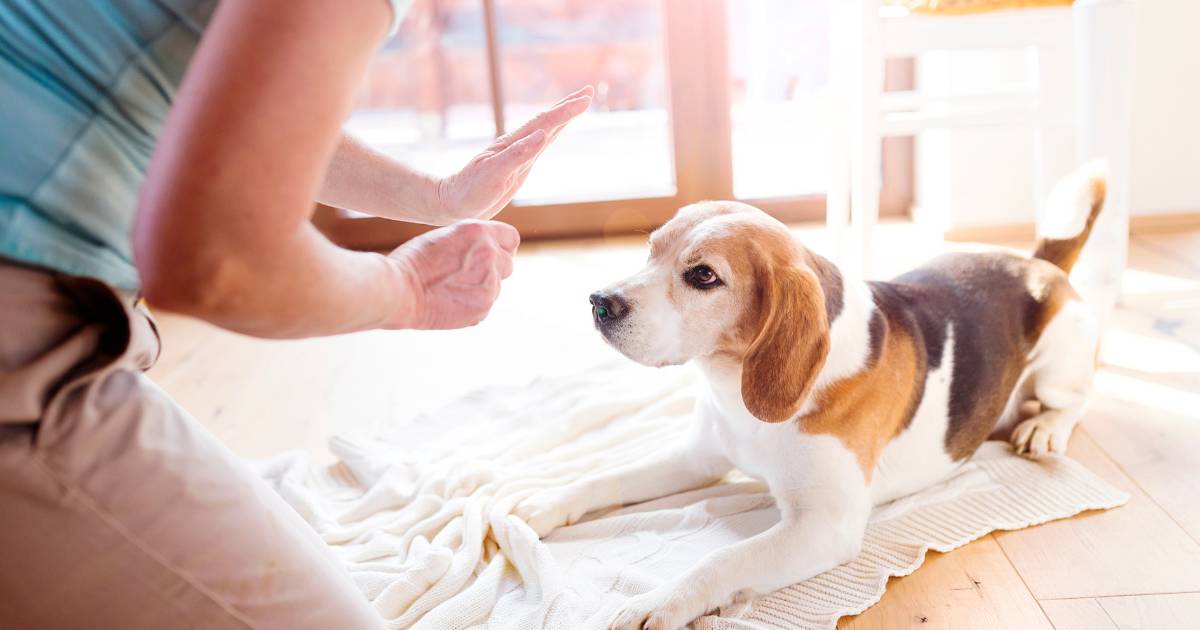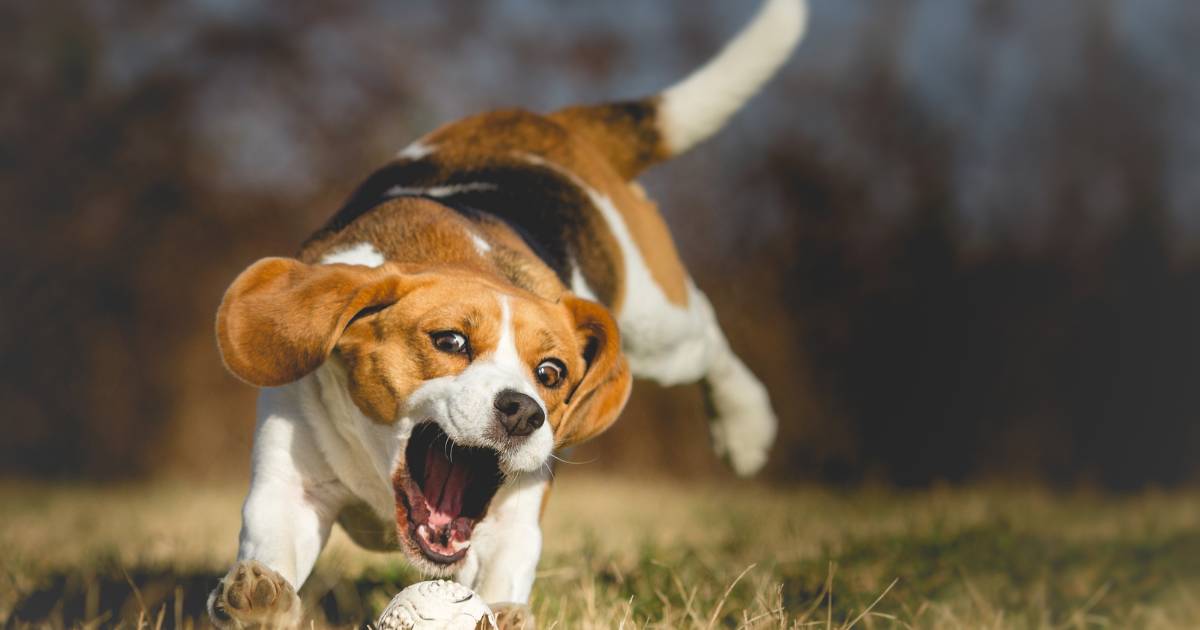Beagles are a popular breed of dog known for their friendly, energetic nature. They are small hunting hounds with a hardy build and short legs perfect for tracking rabbits and other small game. Beagles are intelligent and loyal companions that form strong bonds with their human families. Their curious personalities and playful antics endear them to many dog lovers.
Are Beagles Smart or Not? What You Need To Know. Beagles have a reputation for being friendly, happy-go-lucky dogs. But how smart are they compared to other breeds? Understanding a Beagle’s intelligence and trainability can help you decide if this breed is the right fit.
While eager to please, Beagles can be challenging to train due to their strong will and easily distracted nature. They often need consistent, positive reinforcement to master basic commands. Beagles are intelligent in their own way, using their excellent sense of smell to follow scents with determination. But they may not be the quickest to pick up complicated tricks. Ultimately, Beagles can be smart companions with the right training approach tailored to their unique traits.
The Origins and History of Beagles
To understand the modern beagle, it helps to look at its history. Beagles originated as a scent hound in England bred specifically for hunting hares and rabbits. Their excellent sense of smell, energy and determination made them prized hunting companions.
Beagles were standardized as a breed in the 1830s. They were popular amongst hunters and farmers in England, often kept in packs. Beagles were later brought over to America and recognized by the American Kennel Club in 1885.
This background as a driven scent hound is important – beagles have been selectively bred for centuries to use their nose and follow a scent with independence. Understanding these original traits helps owners accept some of the behaviors of today’s beagle.
The Intelligence and Trainability of Beagles

So how smart are beagles compared to other dog breeds? Unfortunately, beagles are commonly ranked low in intelligence and trainability.
In author Stanley Coren’s book “The Intelligence of Dogs,” which ranks breeds by intelligence, beagles came in at 73rd out of 80 breeds tested. Border collies and poodles topped the list, while Afghan hounds and basset hounds ranked at the bottom with beagles not far behind.
While this ranking should not be taken as gospel, it reflects that beagles do tend to have more challenges in training and learning new commands. There are a few key reasons behind the beagle’s lower trainability:
Strong Prey Drive
Beagles were bred to use their nose to follow prey – this instinct is very strong in them. Their powerful sense of smell can easily distract them whenever they pick up an interesting odor. Strong scents and sights quickly grab their attention and override any training cues from their owner.
Independent Thinkers
As hunting hounds, beagles had to problem solve independently in the field when tracking prey. This means they are not as oriented towards obeying their owner as breeds like shepherds or retrievers who work closely with their handlers. Beagles like to think for themselves.
Determined and Stubborn
The beagle personality is energetic, curious and determined. While this makes them excellent hunters, it can mean they are stubborn or difficult to train. Beagles may refuse to obey if something more exciting has grabbed their attention. Their strong will requires patience and creativity from owners.
Breed-Specific Traits
Some other beagle traits that influence their trainability include:
- Distractibility: Their curiosity can make training sessions unproductive if there are lots of smells and sights competing for their attention.
- Short attention span: Beagles bore easily and have poor recall of previous training. Sessions need to be short and engaging.
- Motivated by food: Beagles respond best to positive reinforcement and food rewards.
So while beagles do rank lower in obedience and working intelligence, this does not mean they cannot be trained. But it does mean owners should adjust their expectations and use training techniques suited to the beagle temperament.
The Most Effective Ways to Train a Beagle

While beagles may not be the easiest dogs to train, they can learn basic obedience, tricks and house rules. Here are some tips for training beagle puppies and adult dogs.
Use Positive Reinforcement
Beagles are very food motivated – using treats and praise as rewards is the most effective approach. Punishment like scolding does not work well. Reward small successes to keep your beagle engaged. Carry tasty treats during all training sessions.
Short, Frequent Sessions
Beagles have short attention spans. Keep all lessons brief, about 5-10 minutes. Try to train every day if possible in distraction-free environments. Also teach one cue at a time until mastered.
Patience Is Key
Beagles can take longer to pick up cues – repetition and consistency are very important. Be patient as your beagle needs more time to absorb lessons. Make training low-stress and fun for best results.
Proper Motivation Helps
If your beagle is stubborn or distracted, find a reward that really motivates them – favorite treats, high value toys or extra playtime. Use these special rewards to reinforce training cues.
Crate Training Works Well
Crate training takes advantage of a beagle’s natural denning instinct and supports house training. It also prevents accidents when you can’t supervise directly.
Address Wandering Tendencies
Beagles have a habit of wandering off following scents – it’s key to train a very reliable recall cue (“come!”) starting at a young age. Work up to recalling from distractions. Also train them to accept being on a long leash when outside off-leash areas.
Adjust Your Expectations
Accept your beagle’s limits – they may never be “obedience star pupils” like herding breeds. But they can learn basic manners and cues with the right approach tailored to their temperament. Celebrate small successes.
While beagles can be challenging to train, the right approach can help them become well-mannered companions. Owners who adjust their expectations and use reward-based training tailored for beagles can achieve success.
Are Beagles Intelligent In Their Own Way?
While beagles rank lower in working intelligence, they are intelligent in their own way. Beagle owners need to recognize and channel their breed’s special natural abilities. Some signs of a beagle’s intelligence include:
Excellent Scenting Skills
A beagle’s sense of smell is extraordinary – they can pick up scents humans do not even notice. Beagles use this ability to track prey and determine where animals have traveled. Law enforcement agencies even use beagles for airport security and contraband detection.
Problem Solving Ability
In hunting scenarios, beagles use independent thinking to solve problems like determining the direction an animal went and how to flush it from cover. They are clever at figuring out situations on their own.
Communication Skills
Beagles have a wide vocabulary of bays, howls and whimpers to communicate with their human handlers while hunting. Different sounds relay information like “I’m on a scent!” or “I’ve lost the trail.”
Tracking Instincts
Beagles are hardwired to pick up and follow scents with determination. This trait has been selectively bred into them through generations of breeding by hunters. Their tracking skills are impressive.
So while a beagle may not ace an obedience trial or quickly learn advanced tricks, they are still intelligent in specific areas.
Is a Beagle the Right Dog For You?

Before deciding to get a beagle, prospective owners need to reflect on their needs and lifestyle to see if this breed is a good match. Here are some key considerations:
Your Commitment to Training
Beagles need dedicated, patient owners who are willing to put in the time and effort using positive methods tailored for stubborn breeds. Without proper training, beagles are more likely to develop problem behaviors.
Your Energy Level
Beagles are energetic and require regular exercise and playtime to prevent boredom. Can you provide at least 30-60 minutes of activity for a beagle daily?
Your Tolerance for Noise
Beagles are vocal dogs that bay, howl and bark. They can be noisy when bored, hungry or lonely. Are you prepared for frequent vocalizations?
Your Living Environment
Beagles do best in homes with securely fenced backyards where they can play and explore off-leash. Apartment living can be challenging for this active breed.
By thinking over these factors honestly, you can determine if a beagle is a good addition for your home. Beagles can make wonderful family companions for those prepared to understand their unique temperament. But they are not low maintenance dogs when it comes to training and exercise.
Meeting with knowledgeable beagle breeders is a great way to learn more about the breed’s personality and needs. Many rescue organizations can also match you with an adult beagle whose traits are already apparent.
FAQ’s
For those considering adding a beagle to their family, here are answers to some common questions about this breed’s smarts and temperament.
Are beagles hard to potty train?
Yes, beagles can be more challenging to housetrain than other breeds. Their stubborn nature means they pick it up slower. Consistency, routine, crate training and treats for successes are key for beagle puppies.
Do beagles shed a lot?
Yes, beagles are average to heavy shedders. Their short coat needs weekly brushing to minimize loose hair. Be prepared for dog hair on your furniture and clothes.
Are beagles good family dogs?
Yes, when properly trained and exercised, beagles make wonderful family pets. They are gentle, affectionate, and patient with children. Their playful nature matches kids’ energy levels. Early socialization helps beagles live harmoniously with other pets too.
Are beagles easy to train?
No, beagles are generally not easy to train. Their independent nature and tendency to be stubborn and distractible means they require more effort and patience to train than breeds like labs or collies. Use short, rewarding sessions and you can teach a beagle basic obedience.
Do beagles bark a lot?
Beagles are vocal dogs that will bay, howl and bark. When bored, hungry or seeking attention they can become nuisance barkers. Ensure you give your beagle enough daily exercise, play and interaction to prevent problem barking.
Are beagles aggressive?
No, beagles are not typically aggressive if properly socialized from a young age. They have gentle dispositions and get along well with children and other pets. However, all dogs including beagles can become fearful or defensive if not exposed to people, places and situations during important early development periods.
Are beagles escape artists?
Absolutely. Beagles are infamous for their ability to escape from yards and kennels. Their strong tracking drive means they will wander off following any interesting scent they pick up. Secure, high fencing and supervision are musts if you want to avoid losing your beagle.
Do beagles get along with cats?
Beagles tend to have high prey drives thanks to their hunting background. This means they may instinctively chase cats or other small pets. With early socialization and training, beagles can usually learn to accept other pets peacefully. But supervision of interactions is still important.
How long do beagles live?
The average lifespan for a healthy beagle is 10-15 years. Ensure you provide your beagle with regular vet care, a good diet, daily exercise and mental stimulation to maximize their longevity.
Conclusion
While beagles are not the most trainable or “brightest” dogs when it comes to working intelligence, they make up for it in other ways. Their affection for their families, enthusiasm for life and determination make them lovable companions.
Beagles flourish with dedicated owners who are patient, consistent and use positive reinforcement to instill good manners. Training a beagle takes creativity and an understanding of their unique temperament. But putting in the effort pays off with a loyal, fun-loving dog.
If you’re looking for a dog who will breeze through advanced obedience drills, the beagle may disappoint. But if you enjoy an energetic pal with enough smarts to make you laugh while also being a snuggly couch buddy, the beagle could be the perfect fit. Meet with beagle owners, breeders and rescued beagles to get experience with these charming scenthounds. Soon you might find yourself merrily engaged in a battle of wits and willpower with your very own beagle.







